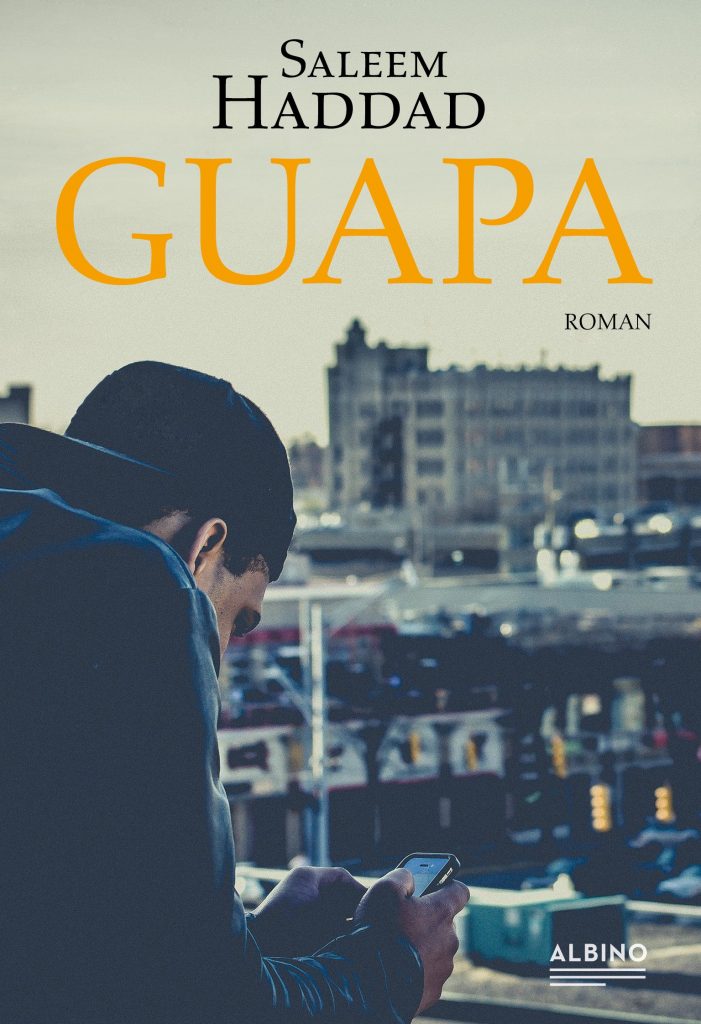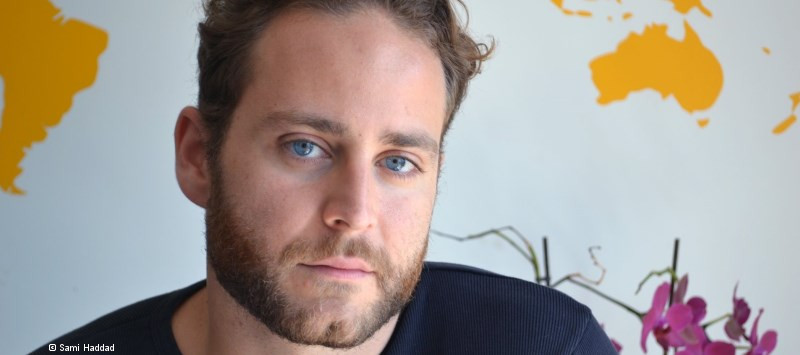In his novel "Guapa", Saleem Haddad tells of the life of a young Arab gay man caught between revolution and resignation, shame and self-assertion.
From another, selective perspective, Rasa would have to be a happy person.
He has set up his own business with fellow students and interprets for American reporters abroad; he has a reliable circle of friends with whom he can not only party and drink, but who are also there for each other in times of need. And he has a man in his life with whom he shares his nights, his love and his longings.
But from the perspective of the young first-person narrator Rasa, life increasingly turns into hell. What began as the Arab Spring, the mood of optimism and change, the hope for a freer life, has long since turned into the opposite.
The - never named - country in the Middle East is sinking into chaos and violence. And bad enough that his relationship with his lover Taymour has to be kept secret, there seems to be no future for them.
The novel "Guapa" offers a complex panorama of the Arab world
"The morning begins with shame." Saleem Haddad has placed what is probably the most important word in his debut novel in the very first sentence. The German terms Scham, Schmach and Schande (shame, dishonour and disgrace) only barely outline the complex and therefore flexible social rules, prohibitions and expectations that the Arabic word "eib" encompasses.

For Rasa's traditionally minded grandmother Teta, a man lying with another man is clearly eib. And that morning, she caught her grandson in flagrante delicto with his lover through the keyhole and banged on the door, screaming at the top of her voice.
In the 400 pages that follow, Haddad describes the next day in his hometown, which could equally be Amman, Algiers or Damascus. 24 hours in which not only the events in his own life, but also in the lives of his friends and not least the situation in his country come to a head.
Saleem Haddad, born in Kuwait City in 1983 and raised in Jordan and Cyprus, studied in Canada and now lives in London with his partner. In his first novel "Guapa", he not only deals with his own coming-out experiences and how his family and society deal with homosexuality. Rather, he creates a complex panorama of the Arab world, which is being shaken by the revolt and freedom movements, but also by growing religious fanaticism.
Self-hatred, self-doubt and the desire for a freer life
In skilfully inserted flashbacks, Haddad not only reveals a number of secrets in Rasa's family that have been kept secret out of shame, as it turns out, but also unfolds her search for her own identity, driven by self-hatred, self-doubt and the desire for a different, freer life.
A poster of George Michael, pop music and American TV soaps thus become ciphers for such a life outside this inner prison in which Rasa finds herself.
However, the start of his studies abroad in the USA coincided with the attacks of 11 September. Suddenly it was "not my being gay, but my Arab origin that seemed contemptible", and Rasa felt "assigned to an anonymous mass: Arab. Muslim".
He was now one of "them" again and suspicious per se. "I wanted to scrape off my skin, my name, my accent, everything, just to avert these suspicious glances." Saleem Haddad succeeds in portraying the consequences of such generalisations and the clinging to one's own roots - even to the point of radicalisation - in a plausible and impressive way.
As the son of a German-Iraqi mother and a Lebanese-Palestinian father, Haddad combines so many perspectives and conflict issues in his novel that he sometimes threatens to reach his narrative limits. But this abundance is also the great advantage of this book: it enables an equally broad readership to gain access to these worlds.
"Guapa" is a coming-out story, love story and family novel and also scrutinises Arab and Western (American) social structures with an equally critical and sensitive eye. Of course, Haddad offers a sobering, disillusioning outlook for his main character and her home country.

Threatened freedoms of the LGBT community
And yet "Guapa" is not a depressing or even discouraging novel. The freedom that the LGBT community has created for itself - in the novel, the eponymous bar Guapa stands for this - may be under threat, but the principle of hope still prevails. And the will to no longer let things get them down. If the bar is closed down, says the lesbian owner Nora, then she will just reopen somewhere else.
Maj, the tough amateur drag queen (with a niqab in Marylin Monroe design), was arrested by the police together with others while cruising in a cinema, beaten up and humiliated.
The beating may have left Maj with bruises, but it didn't break him - on the contrary. In the end, Maj is as self-confidently queer - his blue violets covered with kohl, his lips painted red - as a young gay Arab can be.
Translated from the English by Andreas Diesel. Albino Verlag, 392 pages, 16.99 euros
Website of the author: www.saleemhaddad.com










